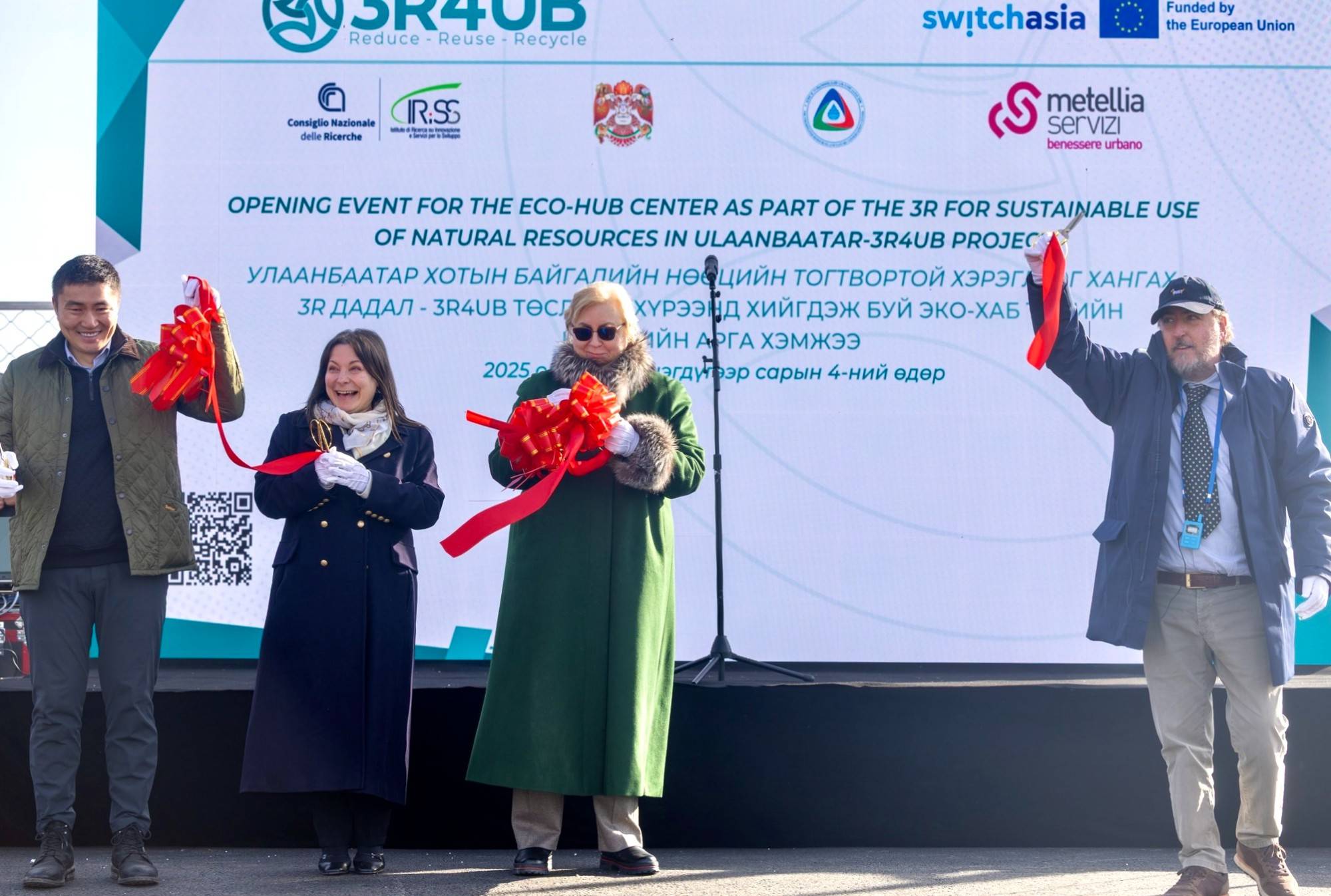
The Government of Mongolia has been implementing several initiatives related to waste management and the 3Rs (Reduce, Reuse, Recycle) at various levels. However, many of these initiatives have not fully addressed the country’s growing waste management challenges, and a coordinated national system remains lacking. As a result, solid waste continues to be dumped indiscriminately, often without proper treatment or disposal methods. This contributes to environmental degradation and public health risks, aggravated by the absence of regular collection schedules, limited landfill options, and the lack of facilities for hazardous waste disposal. In addition, the absence of consolidated data on waste generation and management continues to hinder long-term planning and the implementation of effective waste strategies.
The EU-funded SWITCH-Asia 3R4UB Project supports SMEs and MSMEs in adopting Sustainable Consumption and Production (SCP) practices, from demonstration to large-scale replication, towards building a more sustainable urban landscape and waste management system in Ulaanbaatar.
The project mobilizes key stakeholders, including private sector actors, financial intermediaries, producers, consumer organisations, and social groups, to work alongside the Urban Landscape and Waste Management Department of the Mayor’s Office of Ulaanbaatar. It also promotes integrated design tools and approaches for SCP and the Circular Economy, encouraging knowledge-sharing and co-design among government agencies, MSMEs, civil society, and citizens.
Through this inclusive approach, the project contributes to innovative and competitive solutions for Ulaanbaatar’s environmental challenges, tested through practical demonstration models.
Eco Hub: A Game-Changer for Ulaanbaatar’s Waste Management
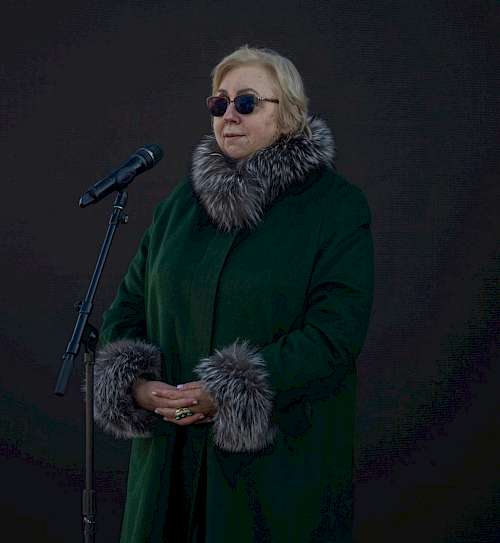
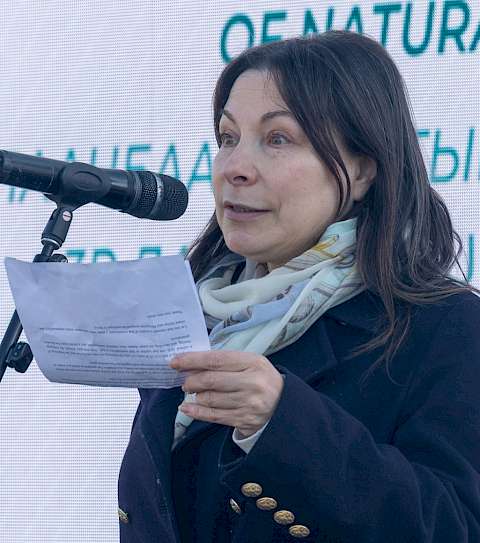
On 3 November 2025, the Eco Hub Center was officially inaugurated by Ina Marčiulionytė, EU Ambassador to Mongolia and Giovanna Piccarreta, Italian Ambassador to Mongolia. The new facility can receive up to 150 tons of sorted waste per day and press 10–15 tons per hour, positioning it as a key infrastructure for Ulaanbaatar’s recycling system. Mongolia currently has 396 landfill sites covering 3,811.6 hectares, where about 3.4 million tons of household and organizational waste are disposed of every year. Currently, only 7.6% of this waste is recycled, although the potential could reach 30–40%. Located in Chingeltei District (12th khoroo), the Eco Hub strategically serves Chingeltei, Bayangol, and Sukhbaatar districts, allowing for efficient collection, sorting, and transfer of recyclable waste. Over time, this will help reduce landfill pressure, prevent soil pollution, and improve circular flows of resources.
Incentivizing Households for Responsible Waste Management
To engage citizens directly, households can use the Eco Hub mobile application to:
- Deliver sorted household waste for collection,
- Earn reward points for their contributions, and
- Request transport services for large quantities of waste.
This digital incentive system promotes responsible consumer participation in the circular economy while fostering behavioral change at the community level.
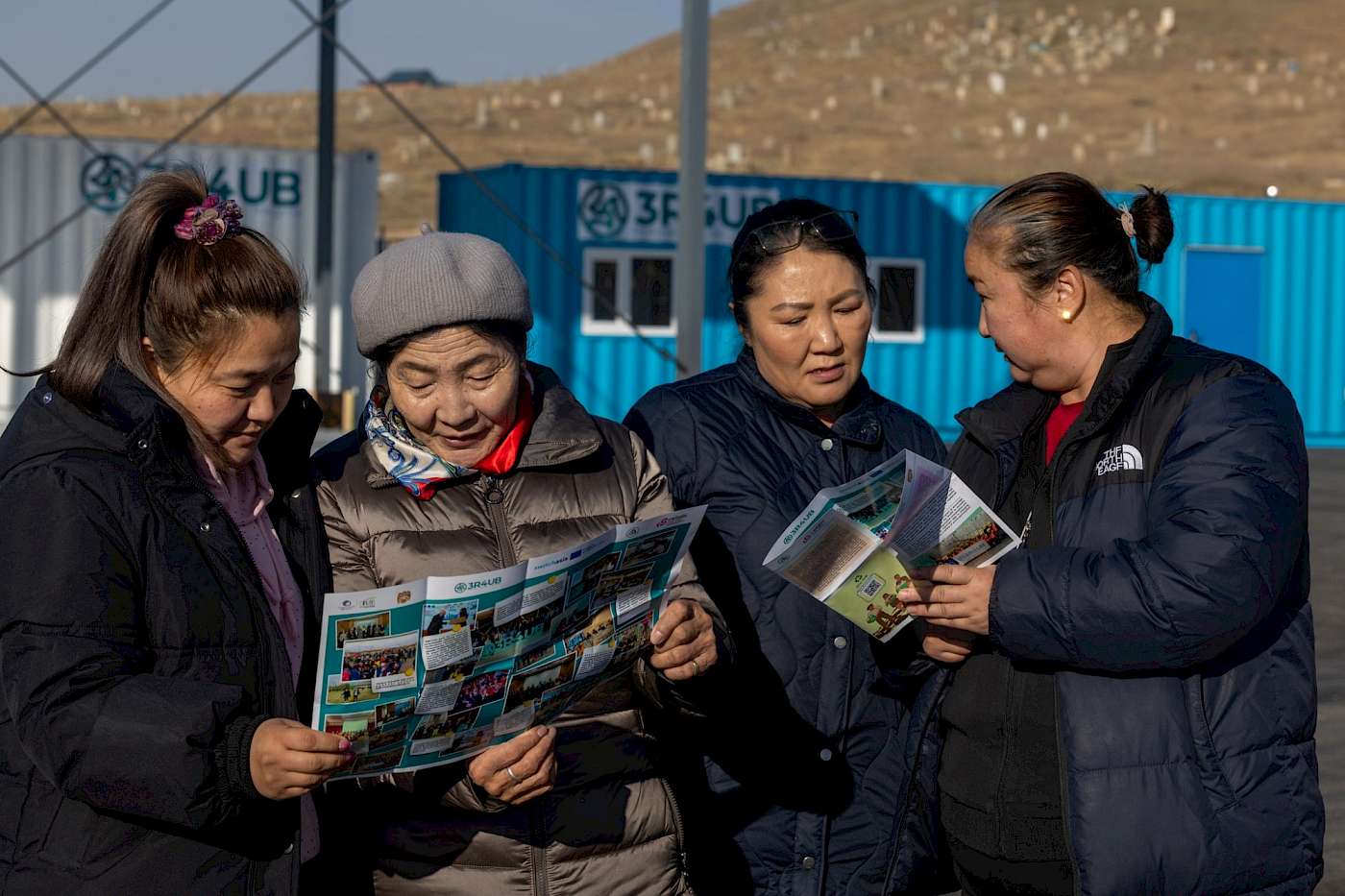
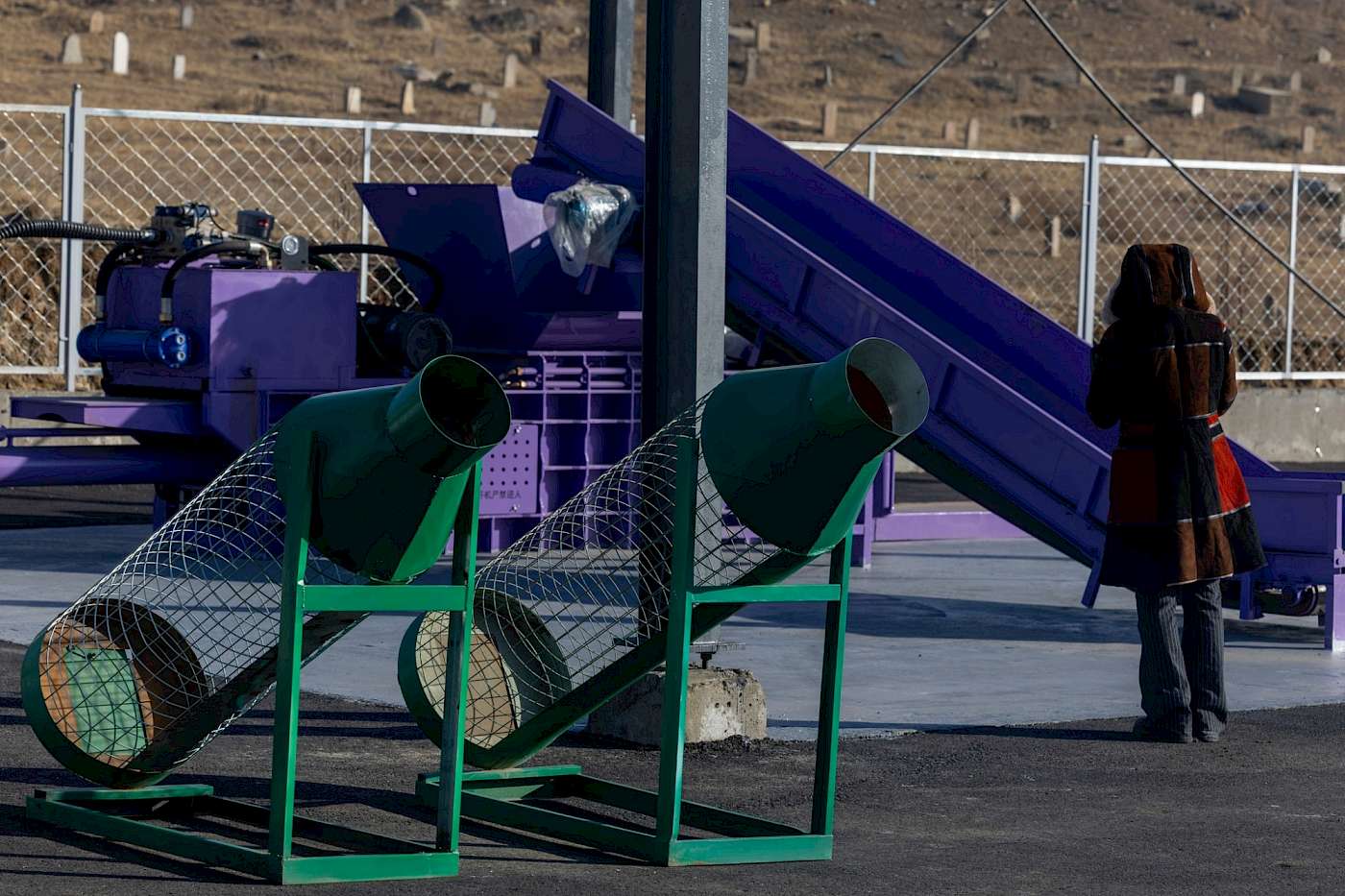
The Eco Hub Center, which can be considered the main achievement of the 3R4UB Project financed by the European Union under the SWITCH-Asia Programme, has now started its operations, said Gabriella Esposito, Scientific Coordinator of the 3R4UB Project.
“I am confident that the recycling industry, sharing the same goal and vision for the sustainable development of Ulaanbaatar, will cooperate, learn from each other, and bring forward innovative ideas through this center. The Eco Hub will not only sort and collect waste, but will also organize training, consultation and awareness activities involving stakeholders in the transition towards a circular economy”, she added.
The new center will collect sorted waste from schools, kindergartens, government offices, and other monitored institutions, channeling recyclable materials into processing networks. This marks a significant step toward strengthening Mongolia’s circular economy and achieving the country’s sustainable waste management goals.
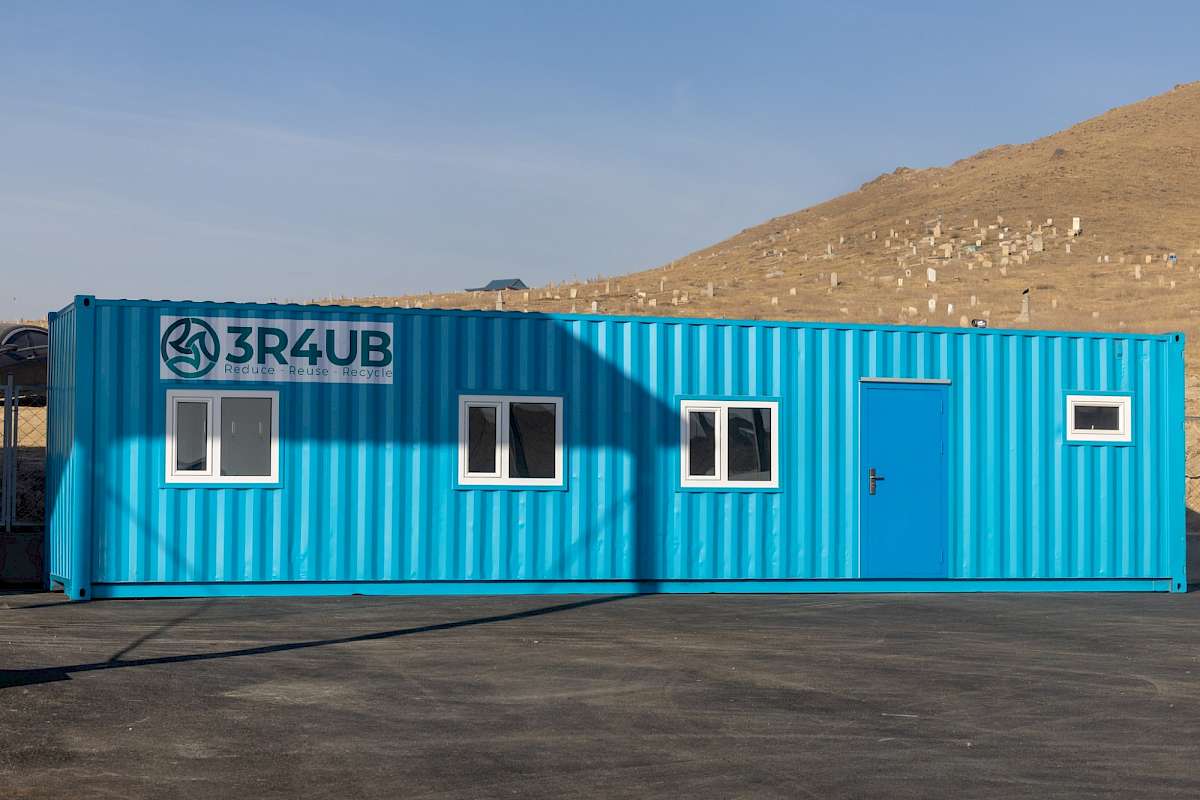
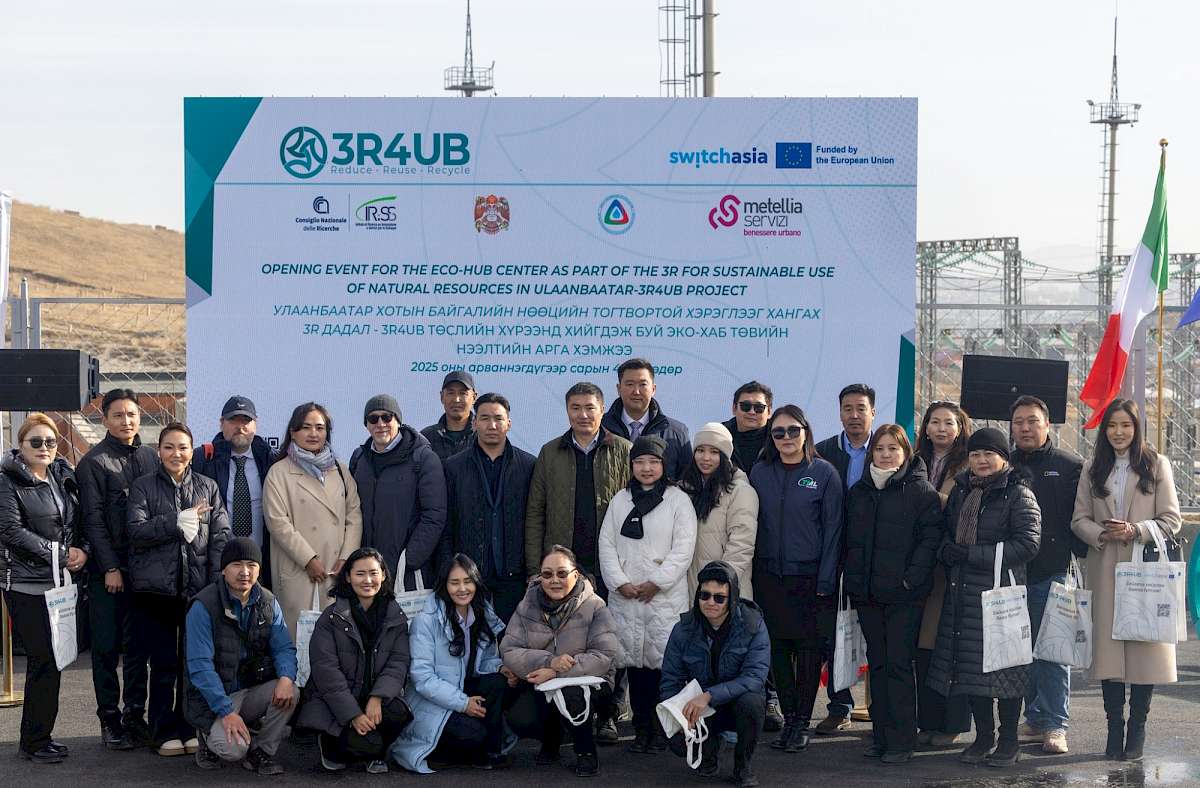
This project is implemented with the support of the Delegation of the European Union to Mongolia and financed through the EU SWITCH-Asia Programme. It was carried out in partnership with the Ulaanbaatar City Mayor’s Office, the Fresh Water and Nature Conservation Center, the Mongolian Sustainable Development Strategy Institute (MSDSI), and the CNR – Italian National Research Council.
Photo credit: EU SWITCH-Asia 3R4UB project


